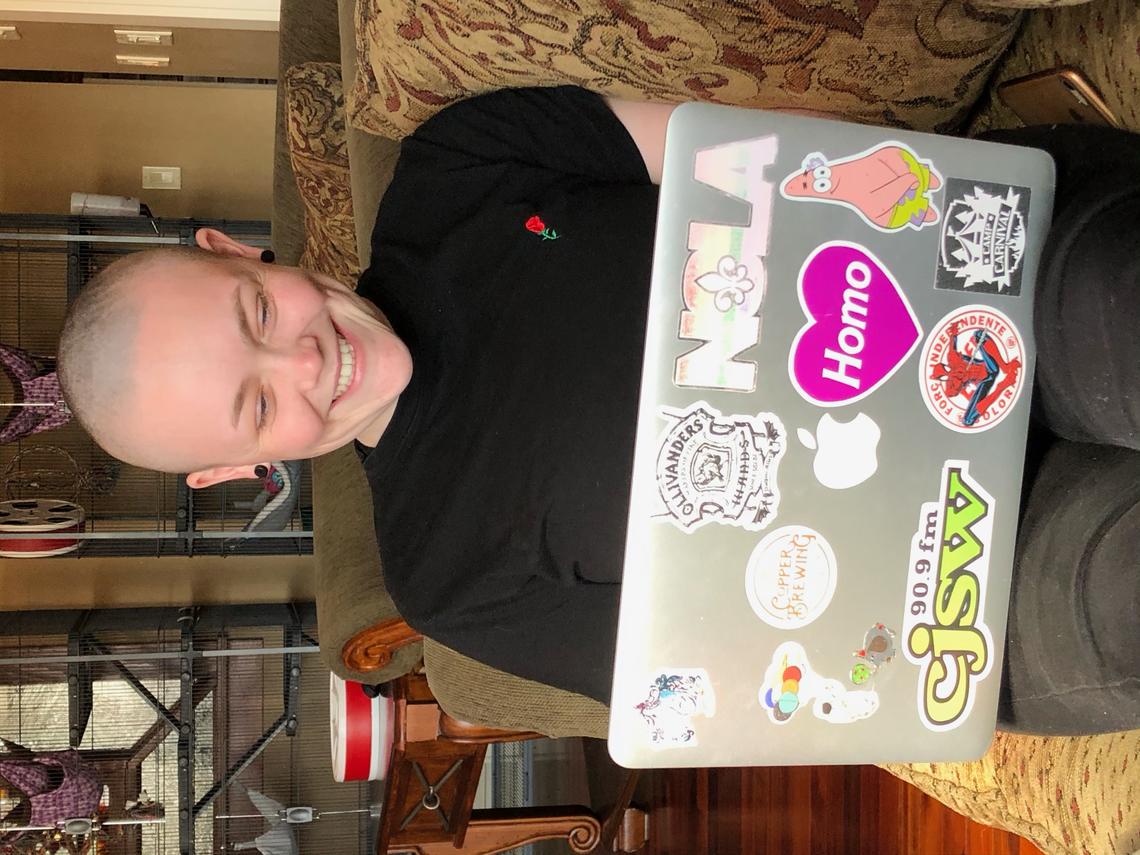
Class of 2021 graduate Brooklyn Sheppard will be working on computational linguistics this year.
June 7, 2021

Class of 2021 graduate Brooklyn Sheppard’s approach to linguistics is the same as her approach to the world.
Question everything.
So, when the Bachelor of Arts major in linguistics with an honours degree was looking for a topic on which to focus her thesis, she turned to sarcasm, which invites the listener to question the meaning of what’s really being said.
It was the perfect two-sided coin for her to examine. On the one side, a sarcastic remark is seemingly exactly what you hear, but on the other, it’s something that is precisely and often cuttingly otherwise.
“I tend to think about things critically and question them rather than taking them at face value,” says Sheppard, who is enrolling at the University of Edinburg in Scotland to work on a graduate degree in speech and language processing, a branch of computational linguistics. “I was very sarcastic even as a kid, so it was a way of conveying humour and a point of view that I liked.”
Computational linguistics is an interdisciplinary field that mixes computer science and linguistics. It examines the computational modelling of language, both written and spoken. It also can involve working with and analyzing data to organize it into actionable information.

Class of 2021 graduate Brooklyn Sheppard will be working on computational linguistics this year.
“Basically, you can help program computers to better understand or create language,” says Sheppard. One example is Siri, the voice-controlled personal assistant for Apple users. “So, after doing this master’s degree, one field I could work in could be artificial intelligence (AI).”
In her honours thesis, she investigated whether there are certain intonational cues in speech which signal that someone is speaking sarcastically. What she found is that using more exaggerated pitch contours and speaking more slowly can lead listeners to think that a speaker is being sarcastic.
She also looked at whether these cues lead listeners to draw different conclusions when used in “negative sarcasm” — for example, “You’re a really awesome cook” versus “positive sarcasm,” which would be “You’re a terrible cook.”
It’s enough to make anyone in the kitchen think twice.
During this summer, Sheppard will continue to work with her thesis supervisor, Dr. Stephen Winters, PhD, assistant professor in the School of Languages, Linguistics, Literature and Culture, on different renditions of the original experiment.
“Brooklyn’s not really the attention-seeking type, but she’s very bright, and it’s fun to see her excitement when she gets the chance to start talking about her work,” says Winters. “I’ve come to know Brooklyn as an exceptionally talented, independently motivated, extremely intelligent and hardworking student of linguistics.”
Winters says she is unique amongst his students in that she started out with physics but then changed over to a linguistics degree when she realized that it interested her more.
She still works as a math tutor on the side to help pay the bills and she’s also been a PASS tutorial leader for the Intro Linguistics classes in more than one semester.
The PASS program at UCalgary provides supplemental instruction to help students with course content through directed group discussion.

Class of 2021 graduate Brooklyn Sheppard, fourth from left, attends a Dodgers baseball game in Los Angeles with her parents and friends. From left, Kevin Blackburn, Terra Connors, Maureen Sheppard (mother), Brooklyn, and Mike Sheppard (dad).
“One of the most valuable lessons that linguistics can teach us is that there is no right or wrong way to speak,” says Sheppard. “Languages are equally complex, and it’s unfair to be judged or even ridiculed if you have, say, an accent. I would hope that by understanding languages, it gives us more compassion and allows people to open up more to others.”
Being inherently analytical is a trait that works for Sheppard in the study of linguistics and she finds that she uses the same thinking process, to a degree, in her work as a mathematician and computer scientist.
“We’re looking for patterns and the rules for those patterns,” she says. “For me, linguistics is the perfect marriage of math and English studies, which were both my favourite classes in elementary and high school.”
Who knows? Maybe one day in the future, perhaps when you’re raising your iPhone to ask Siri about your kitchen skills and she responds that “you’re a really awesome cook,” you might wonder if Sheppard has been working on that answer for Apple – and if what Siri just told you as you stare at your iPhone was, in fact, a sarcastic remark or a comment to light up your day. Or both.